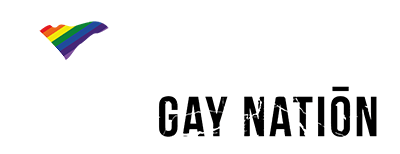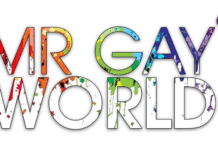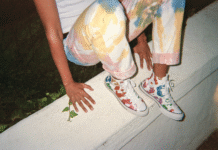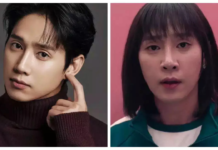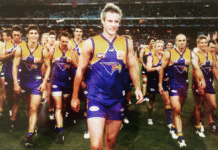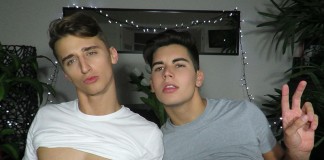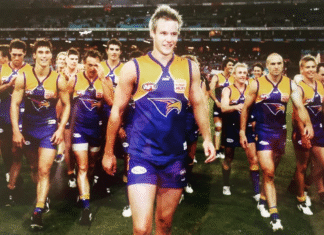
Since the late 2010s, the terms “lived experience” and “authentic representation” have become buzzwords in the entertainment industry, used to describe the unique qualities that queer individuals bring to queer roles.
With the long-awaited release of Netflix’s Squid Games Season 2, discussions of authentic queer representation have once again been making headlines.. While many were pleased to see a trans woman character in the face of Hyun-ju, the show faced criticism for casting Park Sung-hoon in the role—a straight, cisgender male actor. The show’s creator and director, Hwang Dong-hyuk, addressed the backlash, saying that although he intended to cast a trans actor, this was impossible in Korea, where there are “close to no actors that are openly trans,” due to the Korean LGBTQ community being marginalized and neglected.
There’s no denying that queer roles require a certain type of ‘je ne sais quoi’—the subtle looks, the understated mannerisms, a kind of ‘lived with’ awkwardness, and an awareness of what feels true and appropriate. Lived experience brings a refined depth to portrayals that are nearly impossible to replicate with research and coaching alone.
So, why is authentic representation important, and, for all the good intentions, why aren’t we seeing more of it?
Queer people playing queer characters ensure accurate and diverse portrayals that challenge stereotypes and result in stories that foster a greater understanding of the rainbow community.
For queer audiences, such portrayals can be affirming and empowering, offering a sense of belonging in a world that has often marginalized them. Despite this, historically, high-profile queer roles have often gone to heteronormative actors—think Heath Ledger and Jake Gyllenhaal in Brokeback Mountain, Eddie Redmayne in The Danish Girl, and Rami Malek in Bohemian Rhapsody, to name a few.
While big-name actors are seen as bankable box office draws, their casting often sidelines queer actors and reinforces heteronormative interpretations of queer experiences. Casting queer people for queer roles not only results in better storytelling, but it also creates a niche for queer actors who may experience discrimination when auditioning for other roles.
Additionally, seeing queer individuals thrive in the entertainment industry is inspirational to those who may struggle with acceptance, offering visible proof that success is possible.
You could argue that the best actor should get the role—which is the noble and equitable view: we shouldn’t limit opportunities for anyone. If queer actors are, in fact, exceptional at authentically embodying queer characters, they should naturally land the part, right? Not necessarily. Who is judging this authenticity? If the casting directors aren’t queer themselves, are they truly able to recognise the nuances of queer experience? Or are they only looking, even subconsciously, to reinforce heteronormative interpretations and stereotypes of queer people, further subverting the public’s view of the community?
Let’s liken this to the long-debated issues of cultural representation. Imagine a Russian watching an American movie in which a Russian villain wears garish “Russian” attire, speaks with a fake “Russian” accent, and gestures in un-Russian ways, thinking, “Couldn’t they have hired a real Russian to play the part?”
Of course, most audiences, with their limited understanding of Russian culture and their reliance on long-standing Western stereotypes, won’t blink an eye—problematically pigeonholing the culture into a narrow, distorted version that eventually takes on a life of its own. Similarly, queer roles performed by non-queer actors risk further entrenching limited, often harmful portrayals of queer lives.
True change requires inclusivity at all levels of the industry. Queer writers, directors, and consultants are all important in creating narratives that treat queer folk with nuance and respect.
On set, collaboration is essential—having queer individuals present and comfortable in speaking out, ensures their voices are heard. This not only enhances the quality of the production itself but also benefits society as a whole by promoting accurate, respectful, and meaningful representations of the queer community.
Yet, the industry faces a paradox. If authentic representation is not happening enough, it’s not necessarily because all casting directors are closed-minded or ostracizing norms. The truth is—this is a tricky issue! Legal protections, such as New Zealand’s Human Rights Act 1993, prohibit employers—including casting directors—from asking about an individual’s gender identity or sexual orientation (or their childbearing plans—remember the 2017 Jacinda Ardern interview fiasco?).
These laws, rightly designed to protect privacy and prevent discrimination, make it challenging to ensure authentic representation without risking legal or ethical breaches.
So, how does the entertainment industry overcome this? Actors may choose to disclose their identities voluntarily, but they should never feel pressured to do so—a fine line that requires sensitivity and systemic change. The path forward demands that we uphold anti-discrimination laws without compromising the principles of equality and inclusion.
The industry must foster an environment where actors feel safe and supported to disclose their identities if they wish. Queer individuals must be present at all levels of the industry, and society needs to embrace queer actors as leading box office stars, providing a financial incentive for producers to cast them and expanding their opportunities for significant roles.
But, to create a space where authenticity thrives naturally, systemic homophobia and transphobia need to be addressed both on and off the set—only then can we move closer to achieving genuine representation that resonates with all audiences and respects the voices of those it seeks to portray.
Last Updated on Mar 30, 2025
The news team for Gay Nation love tips from our readers. Got tips or a news story that you would like published? Go here to tell us something.
Visit the Gay Nation store Now

